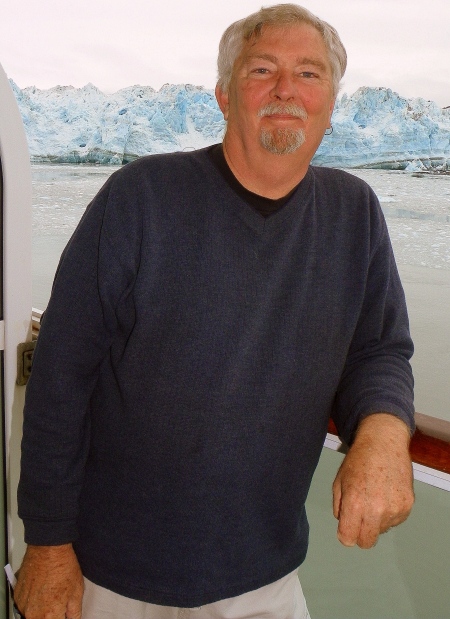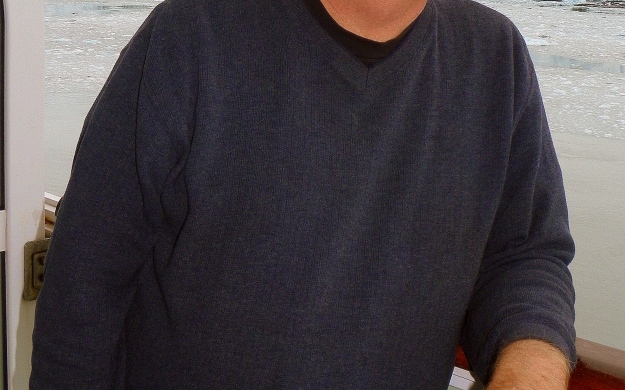
I had the amazing pleasure of speaking with author Mike Billington this past week.
Mike Billington spent nearly a half century as a reporter covering stories around the world and across the United States including Operation Desert Storm, the Rwandan Civil War, hurricanes Hugo, Andrew, Katrina and Rita as well as the Love Canal environmental disaster and the 9/11 airline crash near Shanksville, Pa. During his career he earned more than 40 awards including the Brotherhood Medal of the National Conference of Christians and Jews for an undercover investigation of white-power extremists, and the Southern Journalism Award for Investigative Reporting for a series he co-authored exposing police abuses of Florida’s Contraband Forfeiture Act. He also received several awards for a lengthy series on infant mortality in Delaware. An Army veteran who spent two tours in Vietnam, his awards and decorations include the Bronze Star, Purple Heart and Combat Infantryman’s Badge. In addition, he was twice decorated by the Vietnamese government. He is a cum laude graduate of Kent State University, single, and currently lives in Spain. He has published seven novels to date and is working on three more books.
IDK: When did you first start writing?
MB: I can’t really remember a time when I didn’t write. My mom used to tell people that when I first started reading I also started editing the books she gave me, rewriting the endings if I didn’t like them. I started writing professionally – by that I mean getting paid for it – at 15 when I began freelancing for my local newspaper in Madison, Ohio. I spent nearly 50 years as a journalist before retiring to write novels and short stories full time.
IDK: Tell us a little bit about your most recent book.
MB: Blood Debt is the most recent book I’ve published though I currently have three more in the works. That said, Blood Debt is set in Fort Lauderdale in 1985 when cocaine was king and it’s based loosely on some of the stories I covered when I worked there as a reporter for the Sun-Sentinel. It’s part murder mystery and part international thriller with a little romance thrown in for good measure. The protagonist is Matt Blanchard, a columnist who starts writing about the death of a young woman and, as a result, gets pulled into a government effort to take down a major international drug cartel. The action takes place in South Florida, Panama, and Central America.
IDK: Who are some of your non-literary inspirations?
MB: That’s a hard question to answer only because there are so many. War correspondent Ernie Pyle, who brilliantly documented the lives of soldiers during World War II, is among them as are Marisa Porto – the editor/publisher of The Daily Press in Newport News, Virginia – and Cari DeSantis – the CEO of Melwood, a nonprofit agency in Washington, DC. Marisa is a fierce advocate for government transparency and freedom of speech while Cari has spent much of her life in service to children and their families. As part of that commitment to people that need help, she served eight years in former Delaware Governor Ruth Ann Minner’s cabinet. Others include Neil deGrasse Tyson, Massachusetts Senator Elizabeth Warren, former President Jimmy Carter, Lois Gibbs – who headed the Love Canal Homeowners Association – and Linda Solomon Wood, who founded two online newspapers in Canada that focus attention on issues such as climate change, government transparency, and human rights.
IDK: Have you ever fallen in love with a fictional character? (Television, movies, books).
MB: Oh yes, absolutely. I’ve got big crushes on Beatrice Knight, the heroine of Vered Ehsani’s African Steampunk novels; Josie Tucker, the acerbic food critic/detective in EM Kaplan’s novels; and Emma Peel (I’m showing my age here) from the 60’s British spy series “The Avengers.” If I’m honest, I also have a kind of a thing (I wouldn’t call it a crush, exactly) for Helen King, the protagonist in Sharon Brownlie’s Betrayal. She scares the hell out of me but I can’t help but like her because of her “take no prisoners” approach to dealing with the people that caused her so much pain.
IDK: What is the first step in your writing process?
MB: For me, it always starts with the title. For example, I wrote Corpus Delectable because one day I had trouble saying the words corpus delecti when talking to an editor about a murder trial I was covering. It just kept coming out corpus delectable. It occurred to me that would be a good title for a mystery novel about a beautiful dead woman, a delectable corpse. With that in mind I began telling myself a story about who she might be and how she ended up dead. Once I had done that I sat down and started writing. Unlike a lot of authors, I don’t first outline my stories. I think that’s probably due to all those years I spent as a reporter writing two, three, and four stories a day. You just don’t have time to outline stories under that kind of deadline pressure. You have to fix it in your mind and then hammer it out.
IDK: What is some advice you would give a person just starting their writing pursuits?
MB: I’d tell any beginning writer to do two things: Read a lot and write every single day. When I was first starting out in journalism, my editor told me that to be a good writer I had to also be a good reader. She told me that the way to do that was to spend at least 30 minutes every day reading something that had nothing to do with my job. I took her at her word and have done that, almost without fail, every day since then. I even carried a couple of paperbacks in my rucksack when on patrol during my two tours of duty in Vietnam. If I’d add anything to that piece of advice I’d tell beginning writers to read outside of their comfort zone. I write mystery novels, primarily, but I read everything from non-fiction to science fiction, romance, and dystopian novels and everything in between. I do so, partly, to remind myself that there are many ways to tell a story. Reading how other writers tell their stories also helps to keep my mind – and my writing – fresh. As for writing every day, there must be a hundred authors who have given beginners that same advice. The important thing is to keep your writing muscles strong. You don’t have to write a short story every day: It could be a poem, a letter to a friend, a chapter in your book, a letter to the editor, a postcard to someone in your family, a journal entry, a blog… whatever. Just write something every single day.
IDK: You are best friends with the main character of the last book you read. What would you two do first?
MB: That’s an interesting question… I just finished reading Brandt Legg’s dystopian novel The Last Librarian. The main character is Runit Happerman, who is literally the last librarian on Earth because the government has closed down every other library on the planet. If we had time to catch a breath, I’d have a cup of coffee with him and talk about books. I know, not very exciting, but I love to talk about books.
IDK: Do you have any upcoming projects?
MB: Right now I’m working on three books. One is a mystery novel set in Buffalo. My heroine is a female private detective who lost a leg while serving as an MP in Afghanistan. The second is a collection of short stories that I’ve written over the years. The third is a dystopian novel about a group of military officers who steal an aircraft carrier and a nuclear-powered submarine in an effort to keep alive the seeds of a new civilization. My plan is to have all three finished and published this year.
IDK: What are some of your non-writing activities?
MB: I paint, mostly watercolors, read constantly, and travel. I moved to Spain a few years ago and one of the reasons I did that is because I can travel all over Europe for very little money.
IDK: Would you rather be a master of every musical instrument or be able to speak every language fluently?
MB: I’d have to say I’d like to speak every language fluently. That would help me immensely when I’m traveling but, more than that, it would open up a whole new world of books by authors that don’t write in English. I can read French, Spanish, and Catalan but there are so many independent authors out there writing in languages such as Japanese, Chinese, Arabic, etc. whose books I can’t read. It would be great to be able to read their work.
IDK: What was the first thing you ever got published? A poem, a story, an essay?
MB: I wish I could say it was something really cool like a novel but, actually, the first thing I had published was a news story about an upcoming school tax vote in Ohio. I interviewed students to see what effect they thought its passage or failure would have on academic and sports programs.
IDK: Any final thoughts you would like to leave for the readers?
MB: I would give them the same advice that my first editor gave me: Read something that has nothing to do with your job every day. So many Americans don’t read anything but reports and memos and that’s a little scary because if you don’t read novels, poetry, short stories, and non-fiction books your mind goes stale. Watching television and movies, and YouTube videos, etc. is not the same as reading a good book.
You can find all of Mike Billington’s books at https://authorcentral.amazon.com/gp/books and at http://www.amazon.com/-/e/B001KCABGK
His Twitter handle is @Billington_Book


Great interview. I always like to know mire about the Authors I read.
LikeLike
Pingback: Author Feature Mike Billington – The Quill Pen Writes
Reblogged this on Indie Lifer and commented:
An interview with author Mike Billington.
LikeLike
Shared and saved to Kindle 🙂
LikeLike
A most interesting interview, and what interesting adventures (if you see life as a theatre piece) Mike has had and continues to have. Thank you, Felipe and Mike.
LikeLike
A great interview from you two guys, and one which takes Mike further up in my esteem. An impressive personal bio of a writer who’s seen and done what many dream about.
Mike’s novel, ‘The Third Servant’ remains in my top five books of the last few years. I’d seen his brief bio, but this piece proves he’s lived, and is still living life to the full.
LikeLiked by 1 person
Added Mike to my ‘authors I need to read’ list. (secretly wishing I had his life experiences to draw on)
LikeLike
What an amazing life! Fantastic interview.
LikeLike